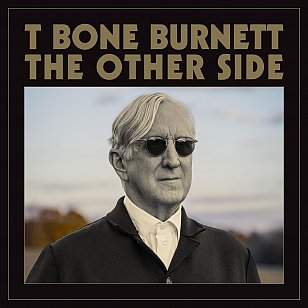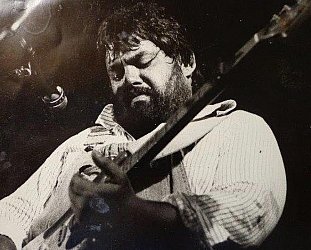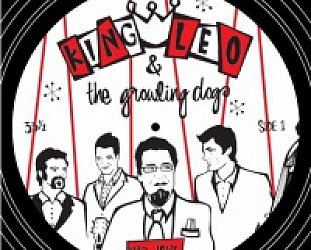Graham Reid | | 1 min read
He Came Down

When Elvis Costello played at the now long-demolished His Majesty's Theatre in Auckland in 1985, he strode down the aisle singing Dylan's Subterranean Homesick Blues which, by the time he got to the stage, morphed into Pump It Up.
It was dramatic flourish to start a brilliant show and an acknowledgement of source material.
As he did in a duet as the Coward Brothers – Howard and Henry --with T Bone Burnett: Elvis was Howard Coward and T Bone was Henry Coward and they played some country material if memory serves me well.
But in his solo set before that T Bone had a dramatic moment of his own.
The tall Texan in a dark suit sat at the piano and unleashed some hugely impressive playing full of baroque flourishes and energy, then suddenly stood up and the piano music kept playing.
The audience roared with laughter, he took a deep bow.
It was that kind of concert: fun, focused, respectful of traditions and furious energy.
Singer-songwriter and producer Burnett is well known these days to those who read the fine print: he produced albums for Costello and Roy Orbison, did Robert Plant and Alison Krauss' Raising Sand and Raise the Roof, Elton John and Leon Russell's The Union and many more.
His name is a hallmark of quality.
He was on Bob Dylan's Rolling Thunder Revue, a decade ago produced a roll call of famous names for Lost on the River: The New Basement Tapes based on Dylan's unrecorded lyrics from 1967 and produced soundtracks including the Coen Brothers' Oh Brother, Where Art Thou? and the Jeff Bridges vehicle Crazy Heart.
He has a shelf of Grammys but his own output has usually been overlooked, although albums like his Grammy-winning The Criminal Under My Own Hat and Tooth of Crime in 2008 (music for a Sam Shepard play) are in sensible collections.
The Other Side is a refined, understated folk-blues and country collection of originals which sound a century old with Rosanne Cash on the easy roll of I'm Gonna Get Over This Some Day (where he sounds like a young Paul Simon), the indie band Lucius on harmonies and old friend Steve Soles from the Thunder review and their subsequent Alpha Band on the tropical balminess of Hawaiian Blue Song.
Opening with the lyrical simplicity of He Came Down which betrays his upbringing in the Baptist tradition and Christ as the redeemer, the album moves through low-key back-porch country blues for Come Back (When You Go Away) and Sometimes I Wonder, the aching Pain of Love (“we are like God but we are not God”), The First Light Day which also alludes to matters of faith then to the existential musing of Everything and Nothing: “Everybody wants to be forgiven but nobody wants to confess . . . everyone wants to be heard but no one has got good advice”.
Quiet, thoughtful and reassuring meditations for this time of doubt.
.
There is an archived interview with T Bone Burnett at Elsewhere here.
.
You can hear this album at Spotify here.





post a comment